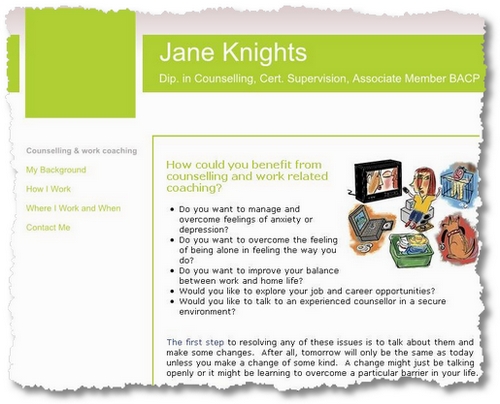Ever just hit the wall. That’s pretty much what I’ve been feeling the past few weeks. Perhaps I’m just burned out. I’ve been trying out the IM much more than in the past, and while I don’t particularly feel overwhelmed, I’ve had some success in getting things going. But it’s the middle of summer, I’m tired because of the business woes. I really need a vacation, a time to kickback, think things in a more unrestrained way, and choose priorities, again.
Partly successful site
Since I began the IM experiment, I managed to build one website that has now gained PR3 ranking, has some useful articles, and some weekly traffic. It’s ranked well in its keywords, and comes on page 1 on most searches. With summer here, the traffic is dropping as people do the same thing I do.
Clickbank: not selling
Unfortunately, the Clickbank products are not selling, and there is very little else available on ClickBank for retail that reflects on the specific areas of teaching that I’m pursuing. So I’m left with a conundrum: what is the reason? is it worth putting in the extra effort to make the sales? could the site be tuned to some other avenue for making money?
At the moment, I’m not sure what the issue is: I think that perhaps it is a combination of three issues: unmotivated visitors, poor quality products, and an insufficiently developed website.
Ever the optimist: I’m going to try additional keywords that reflect more accurately what prospective teachers are looking for so Google’s Adword Tool should come in helpful. I’ve already looked a couple of times, and noted some more specific, albeit higher traffic keywords.
Clickbank products are ranked in the marketplace by popularity and ‘gravity’ but none of the products has a gravity greater than 1.xx. In fact, I just discovered one of my products has been ‘pulled’, and another vendor is using multiple channels for his product (good for him, bad for affiliates like me!). So I think it’s time to start planning alternative for the site as well as the keywords.
What I learned…
It’s been quite a learning curve for me over the past three months, but some of the lessons I have learned have been valuable in other ways: I’ve worked hard to improve the backlinks to my own business site, which has seen a jump in traffic; I’ve found out the importance of EzineArticles and I’m achieving about a 6% clickthrough rate on articles from that; and I’ve figured out that there are a number of ways to make money online from a site such as the one I developed. I’ve considered developing the site as an authority site, then renting the site to a prospective client who gets their name on each and every page; or just using Amazon books and products – I already have a track record for selling books on Amazon; or even just selling the site! It’s got a lot of potential.
How’s your IM going? How did you feel facing your first failures? What kept you going?
